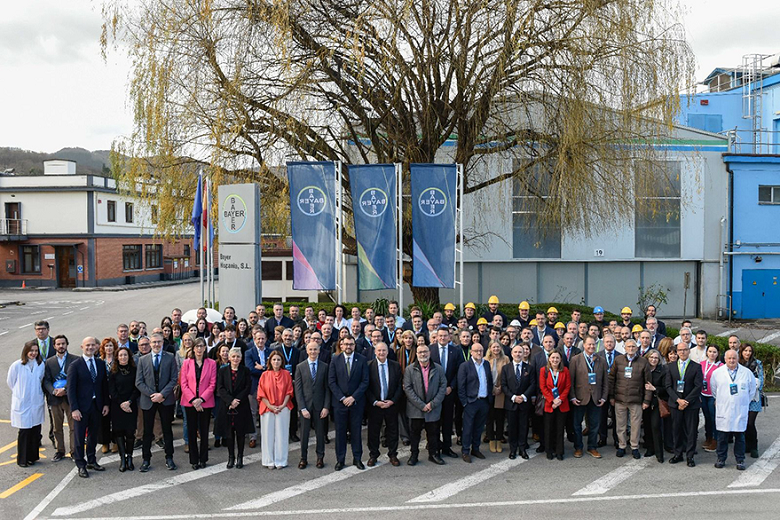Bayer to further expand Asturian plant after celebrating 125th anniversary

The company will buy 25,000 square metres from Iberdrola that are adjacent to the factory, and in which it has invested 34 million euros since 2018.
Bayer has celebrated 125 years of its presence in Spain, at its plant in La Felguera (Asturias). The choice of location for this plant was not accidental. Since 2018, the German company has invested over 34 million euros in this factory, which solely produces acetylsalicylic acid, the active ingredient in its flagship aspirin, which has worldwide distribution. This component is exported in powder form to eight production sites where it is compressed into its various other forms.
During 2024 alone, Bayer invested 3.7 million euros in La Felguera, which has been mainly allocated to expanding the start-up of a new milling plant, making its production model and capacity more flexible. Investments will also continue in the near future to further expand the facilities.
Agreement with Iberdrola
The event with which Bayer closed the year of celebrations to mark its 125th anniversary in Spain also served to announce the purchase option agreement that the pharmaceuticals and agri-food products company has reached with Iberdrola. The electricity company owns a plot of land adjacent to the Asturian plant that would allow Bayer to add 25,000 square metres to its current surface area.
To close the deal, Iberdrola has undertaken to first dismantle the existing infrastructure and process the necessary certificates for the planned change of use. Bayer already signed a very different agreement with Iberdrola in 2021, which became the first long-term power purchase agreement (PPA) signed by a pharmaceutical company in Spain, guaranteeing the supply of 100% renewable energy at all its sites across the country.
Carbon footprint
Aspirin has become the first Bayer drug with a certified analysis of its carbon footprint throughout its entire value chain, which includes the Asturian site.
Bayer's CEO for Spain and Portugal, Jordi Sanchez, said, “We are proud to celebrate 125 years in Spain, and it is an honour to do so from this facility, which is symbolic for being a world benchmark for producing our classic acetylsalicylic acid, as well as an example of competitiveness and our capacity for transformation to move towards a more sustainable model. The analysis that has made it possible to certify the carbon footprint of a Bayer product for the first time represents our desire to continue adding innovation at every step of the process and to lead change in the areas of health and food in which we are active.”
The La Felguera factory was set up in 1942 in the mining area due to the industrial activity that took place there, being a predecessor of the circular economy and for the purpose of using some of the raw materials that came from coal mining waste. True to its commitment to sustainability, it has reduced its carbon emissions by over 50% since 2019.
Photo: Bayer




